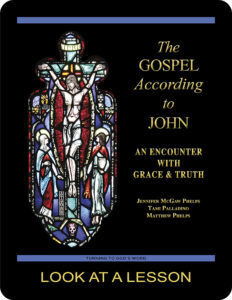illness
 The Gospel According to Matthew 9:9–17 includes this verse: “And when he heard, he said, ‘The strong do not have need of a healer, but the ones who are ill.'” This passage is interesting largely because of the double meaning contained by the Greek word I translated as “ill.”
The Gospel According to Matthew 9:9–17 includes this verse: “And when he heard, he said, ‘The strong do not have need of a healer, but the ones who are ill.'” This passage is interesting largely because of the double meaning contained by the Greek word I translated as “ill.”
The word kakos is the adverbial form of the Greek adjective that means “bad.” The idea of badness in Greek is somewhat different from how we view it today. Anything that’s not good could be said to be bad. So, for example, certainly moral deficiency was bad. Physical problems or illness likewise were bad. This passage relies on the double meaning of this word in Jesus’ suggestion that the “bad” need a healer.
What claim do you think Jesus was trying to make here?
related topics: disease; healing; miracles & signs; sin
you also may like our study of the Gospel According to John
 The Gospel According to John: An Encounter with Grace & Truth, a 25-lesson Catholic Bible study with an imprimatur, examines the Fourth Gospel’s view of Jesus Christ as the Son of God, with special emphasis on the institution of the sacraments of the Church as the means by which Christians are purified and made holy. This recently revised study includes maps and additional commentary, and takes a closer look at the way in which Jesus relates to individual men and women. Click on the book’s cover to view a sample lesson.
The Gospel According to John: An Encounter with Grace & Truth, a 25-lesson Catholic Bible study with an imprimatur, examines the Fourth Gospel’s view of Jesus Christ as the Son of God, with special emphasis on the institution of the sacraments of the Church as the means by which Christians are purified and made holy. This recently revised study includes maps and additional commentary, and takes a closer look at the way in which Jesus relates to individual men and women. Click on the book’s cover to view a sample lesson.
 Click on the picture of the statue of Moses with horns (above) to learn more about Lost in Translation. A new entry is archived each Monday. Contact us to receive Lost in Translation by email every week. You may use any of the contact links on our website to ask Matthew a question.
Click on the picture of the statue of Moses with horns (above) to learn more about Lost in Translation. A new entry is archived each Monday. Contact us to receive Lost in Translation by email every week. You may use any of the contact links on our website to ask Matthew a question.
